Dissident Iranian satirist Ebrahim Nabavi takes own life in Maryland
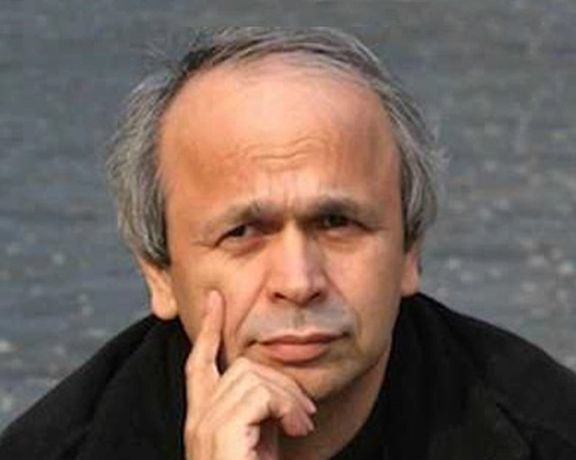
Prominent Iranian satirist and author Ebrahim Nabavi died by suicide in Maryland on Tuesday night, his family said in a statement to Iran International.

Prominent Iranian satirist and author Ebrahim Nabavi died by suicide in Maryland on Tuesday night, his family said in a statement to Iran International.
"Our father took his own life last night in Silver Spring, Maryland. Over the past decade, our father was suffering from depression and missed Iran, and the impossibility of living in his homeland weighed heavily on him," the statement said on Wednesday.
"He passed away without ever being able to come to terms with his forced exile away from Iran," the family added in the statement.
Born on November 13, 1958, Nabavi was a prominent stand-up comedian and satirist who left Iran for France on April 9, 2003, after serving multiple prison terms due to his activism and criticism of the Islamic Republic.
During his more than two decades in exile, Nabavi worked with several news websites and TV channels, including Voice of America, Zamaneh Radio, Rooz Online, and Gooya.
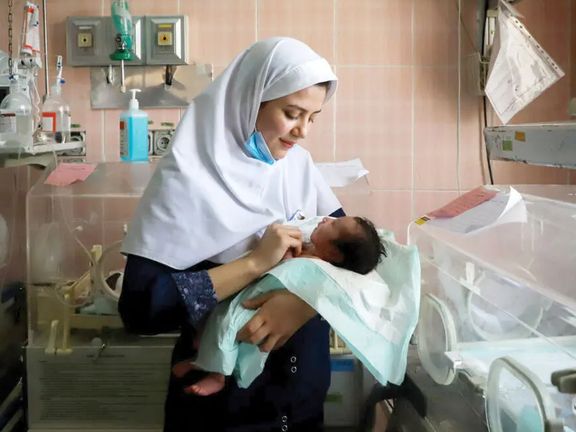
A widespread network of brokers online are working to facilitate a trade in eggs, sperm, embryos and surrogate wombs, Iranian newspaper Ham-Mihan reported in an investigation.
The report on Wednesday details how the transactions are advertised using coded language such as "work from home" on platforms like Divar - a popular Iranian online classifieds site - Instagram and Telegram.
Iran's lack of a clear legal framework governing the donation of reproductive cells and embryos has allowed the brokers to flourish, with some even collaborating directly with doctors.
The advertisements primarily target young adults aged 18 to 31, with varying prices, Ham-Mihan added. Surrogacy typically costs between 3 and 4 billion rials (approximately $3,750 to $5,000), plus an additional 90 million rials (less than $110) paid monthly to the surrogate until delivery.
In May, Tejarat News, another Iranian news outlet, reported a wider range for surrogacy costs, from 4 to 9 billion rials (roughly $5,000 to $11,000). Citing a gynecologist and a maternity ward nurse, it reported that individuals born in the 1990s are the most common surrogates.
Ham-Mihan reported that sellers are required to provide a physician-certified ultrasound confirming the size and reserve of each ovary, along with a certified copy of their national identity card obtained through a designated notary public.
For married donors written spousal consent is mandatory, while unmarried donors must provide a divorce or death certificate. A psychiatric evaluation is also required for all donors.
Zahra Ahmadi, director of social work at the Royan Infertility Treatment Center, a leading facility in Iran, told Ham-Mihan that brokers and intermediaries profit from the unregulated market.
She emphasized that donors can bypass these intermediaries by contacting the Royan Center directly for anonymous donations, dealing directly with the center rather than individual recipients. Ahmadi added that direct egg donors at Royan receive 160 million rials (about $200) per donation under a formal contract.
The report by Ham-Mihan also connects this trade to a broader trend of organ selling in Iran, which has sharply increased in recent years, even involving buyers in neighboring countries.
In June 2023, Hossein Biglari, head of the Kermanshah Kidney Patients Support Association, reported that kidneys were being sold in the province for negotiated prices between 2.5 billion rials (approximately $3,000 at current exchange rates).
Iranian media reports over the past two years have documented the growing prevalence of advertisements for liver, bone marrow, and cornea transplants, as well as sperm and egg donations appearing publicly alongside the sale of kidneys. Some advertisements even offer hearts for sale.
In May 2023, the Jahan-e-Sanat daily reported that some brokers facilitate the sale of organs in neighboring countries like the United Arab Emirates, Turkey and Iraq, fetching prices between of up to $15,000 for sellers.
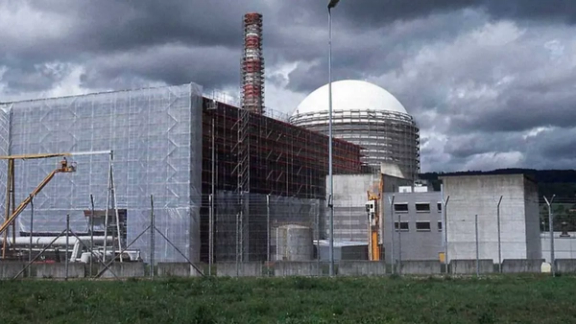
Decisions concerning Iran's nuclear doctrine are made exclusively by the nation’s highest authorities, the head of the Atomic Energy Organization of Iran (AEOI) said on Wednesday.
Iran's potential interest in nuclear weapons has come into focus days ahead of the return to the White House of Donald Trump, who has vowed to deny Tehran a bomb.
Responding to parliamentary discussions on nuclear weapons, Eslami said, "Parliament members express their own views, but decisions regarding the nuclear doctrine are made at the highest levels of the system and by the relevant authorities."
Eslami added that Iran’s nuclear program operates within its established framework, with the Atomic Energy Organization overseeing technical aspects and the Foreign Ministry handling diplomatic negotiations.
Despite Eslami’s assurance of continuity, calls for a more aggressive nuclear posture have grown among influential lawmakers.
Ahmad Bakhshayesh Ardestani, a member of the National Security and Foreign Policy Committee, proposed in November to escalate uranium enrichment and initiating nuclear weapon production in response to an International Atomic Energy Agency (IAEA) censure resolution.
“Under current circumstances, Iran should first move toward increasing uranium enrichment, potentially raising the enrichment level to 70% or 80%. In the second phase, Iran should pursue nuclear weapon production,” Ardestani told Didban News in November.
Iran is currently stockpiling 60-percent enriched uranium, which can be quickly refined to the 90% threshold required for nuclear weapons. Estimates suggest Iran could achieve this level within weeks, but producing an operational warhead involves additional technological and logistical challenges.
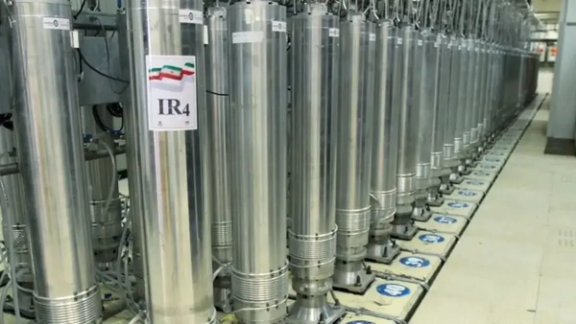
Former AEOI chief Fereydoun Abbasi also addressed the nuclear issue last week, saying that Iran has long surpassed the stage of constructing nuclear weapons.
“We can enrich uranium to any level we desire,” Abbasi said, advocating for stockpiling enriched uranium in secure locations to bolster deterrence. He justified this approach by citing perceived threats from nuclear-armed states, including the US and Israel.
Fatwa and international scrutiny
President Masoud Pezeshkian reaffirmed Iran’s adherence to a peaceful nuclear policy last week, citing Supreme Leader Ali Khamenei’s fatwa prohibiting nuclear weapons.
“The Islamic Republic has absolutely no intention of utilizing its nuclear capabilities for military purposes based on its ideological beliefs and a fatwa by Supreme Leader Ali Khamenei,” Pezeshkian said during a meeting with Britain’s ambassador to Tehran.
The fatwa has been a cornerstone of Iran’s nuclear doctrine for over two decades, though some experts note it could be revised. “The Leader’s opinion forbids this direction now, but opinions can change,” said nuclear engineer Mahmood-Reza Aghamiri.
A top foreign policy advisor to Khamenei said last year that Iran is capable of producing nuclear weapons and an existential threat could cause a rethink of the Supreme Leader's injunction against them.
"If the Islamic Republic of Iran faces an existential threat, we would have no choice but to adjust our military doctrine," former foreign minister Kamal Kharrazi said.
Meanwhile, concerns over Iran’s uranium enrichment activities have intensified. The International Atomic Energy Agency recently reported that Tehran is approaching weapons-grade enrichment levels, prompting European nations to question the absence of a credible civilian justification for its stockpiles.
Amid escalating domestic debates and mounting international scrutiny, Iran’s nuclear doctrine remains at a crossroads, with high-level decisions poised to determine its future trajectory and global implications.

The Seed of the Sacred Fig, the latest film made by Iranian dissident filmmaker Mohammad Rasoulof, has been nominated in BAFTA's hotly contested Film Not In The English Language category.
The film has been nominated in the category alongside All We Imagine As Light, Emilia Pérez, I’m Still Here, and Kneecap.
In 2024, the movie won the Cannes Film Festival's Jury Special Prize, the FIPRESCI Award, the Prize of the Ecumenical Jury, and the François Chalais Award for Best Film, solidifying its reputation as a cinematic masterpiece.
It was also nominated for a Golden Globe for Best Motion Picture in a Non-English Language and won the Audience Award for Best International Feature at the Sydney Film Festival.
Rasoulof’s film delves into the protest movement in Iran following the death of Mahsa Amini in 2022.
"Investigating judge Iman grapples with paranoia amid political unrest in Tehran. When his gun vanishes, he suspects his wife and daughters, imposing draconian measures that strain family ties as societal rules crumble," reads the film's summary on the Internet Movie Database (IMDB).
The film led to an eight-year prison sentence for its director Mohammad Rasoulof, forcing him to flee Iran last May. Rasoulof made his daring escape on foot, traversing rugged mountainous borders to avoid imprisonment.
“Knowing that the news of my new film would be revealed very soon, I knew that without a doubt, a new sentence would be added to these eight years. I didn’t have much time to make a decision. I had to choose between prison and leaving Iran. With a heavy heart, I chose exile. The Islamic Republic confiscated my passport in September 2017. Therefore, I had to leave Iran secretly," Rasoulof said at the time.
Rasoulof’s lawyer, Babak Paknia, disclosed on April 29 that several crew members associated with the film had been summoned by authorities, with some facing interrogation and others barred from international travel.
Germany, the country where Rasoulof has taken refuge, has selected The Seed of the Sacred Fig as its official entry for Best International Feature Film at the 97th Academy Awards.
“It is an outstanding work by one of the great directors of world cinema and someone who has found refuge in Germany from state despotism in Iran. We are very happy to know that Rasoulof is safe in our country. And we are delighted that he will be representing Germany at the Oscars in 2025," German Films said in their statement.
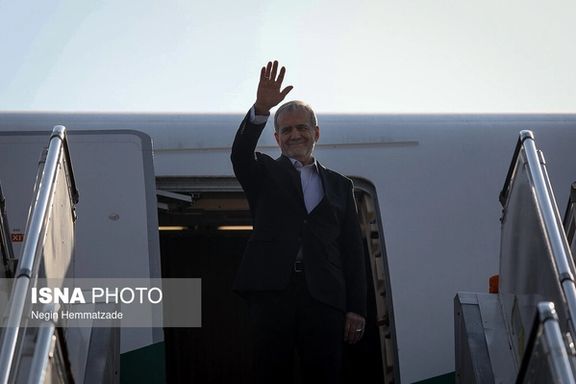
Iranian President Masoud Pezeshkian has arrived in Tajikistan for his first foreign visit of 2025.
Announcing the visit, the Foreign Ministry spokesman, Esmail Baghaei, wrote on X, that the visit is a "symbol of the two nations' leaders’ commitment to further strengthening relations."
During the visit, approximately 20 cooperation agreements are expected to be signed between the two countries, according to Iran's Foreign Minister Abbas Araghchi.
Speaking to Iranian media, Araghchi said Tuesday that the agreements will span various sectors, including trade, investment, water and electricity industries, technical engineering services, transportation, tourism, university research, and more.
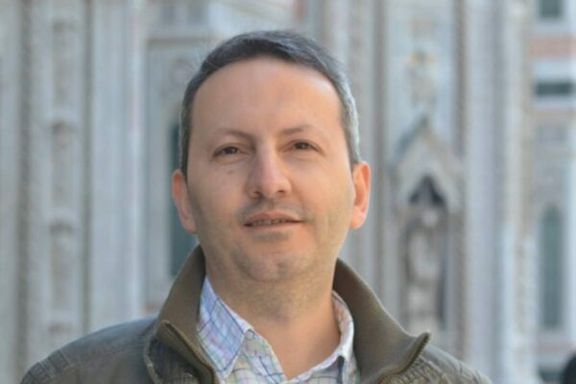
Ahmadreza Jalali, an Iranian-Swedish scientist currently sentenced to death in Iran, accused the Swedish government of neglecting his case in an audio message from Evin Prison.
In the message, which was sent to his wife, Vida Mehrannia, and received by Iran International, Jalali said: "I have been abandoned under these horrific conditions, with the imminent threat of execution looming. It appears that because of my dual nationality, I am regarded as a second-class citizen."
As part of a prisoner exchange agreement in June, Sweden repatriated a former Iranian official convicted of war crimes, Hamid Nouri, in exchange for the release of two Swedish citizens, Johan Floderus, an EU representative, and Saeed Azizi, who had been detained in Iran on charges of "spying for Israel."
However, Jalali, who was sentenced to death in October 2017 on charges of “corruption on earth”, was left behind in Iran.
“Swedish authorities are aware of my situation, yet no actions have been taken to improve it," he added.
"It seems that what might happen to me as a Swedish citizen is not a priority for Swedish officials. I face the risk of death, either by execution or due to my deteriorating health condition."
Since last year's prisoner exchange, Jalali has criticized the decision, describing the Swedish government’s exclusion of him as discriminatory.
In June, he publicly challenged the Swedish Prime Minister to meet with his son and family to explain why he was left behind and what actions would be taken to support them in the event of his execution.
Jalali's trial in Tehran’s Revolutionary Court, Branch 15, was criticized by Amnesty International for relying on confessions obtained under torture.